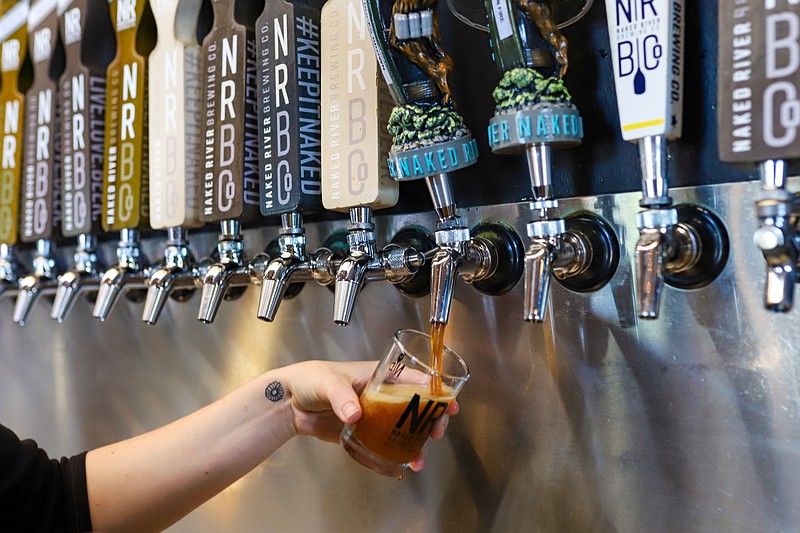Chattanooga may be the only city in America where a single volunteer board regulates both beer sales and tow truck companies. That could soon change.
"Those two items were put together in the 1980s because it met the administrative convenience of someone who worked in (the Chattanooga Police Department) at the time," Chris Anderson, Mayor Tim Kelly's senior adviser for legislative initiatives, said in a phone call. "There's no policy reason or public interest reason for those two areas of regulation to be together on the same board."
On Tuesday, the Chattanooga City Council will consider ordinances on first reading that would separate the functions of the Beer and Wrecker Board, moving the regulation of wrecker companies on the city's call list to the Passenger Vehicles for Hire Board. That panel already oversees taxis, rideshares and horse trams.
(READ MORE: Chattanooga Beer and Wrecker Board set to split after decades together)
The beer board, meanwhile, would solely focus on alcohol.
The changes will require two votes from the City Council before they can go into effect.
Historically, the city's Beer and Wrecker Board has been in charge of issuing all temporary and permanent beer permits, either for businesses or people holding private events, Anderson said. It also reviewed violations of the city's beer code.
Additionally, the panel hears violations by wrecker companies that appear on a rotating list the city calls in the event of a vehicle accident. Those cases show up on less than half of the board's agendas, Anderson said.
Going forward, beer code violations would go first to an administrative hearing officer. If someone wants to appeal a case, it would then go to the beer board.
Additionally, most permits would receive approval from the Chattanooga Police Department. If the department feels uncomfortable issuing the permit because of problems with a background check or uncertainty about zoning, for example, the application could go the beer board for review.
The updates would also change several other aspects of the city code. Currently, the city's beer code states restaurants serving alcohol must be 500 feet from schools, day cares and churches. Off-premise sales or liquor stores must be 250 feet from those establishments.
Especially as development becomes increasingly dense, those regulations can affect businesses. Particularly in Brainerd and along Hixson Pike, Anderson said, day care centers opening in a commercial corridor can make nearby properties unsuitable for restaurants.
The mayor's office had originally proposed reducing those distance requirements citywide to 300 feet and 200 feet, respectively, but after hearing concerns from council members, staff have since adjusted the scope so the changes would only apply to specific commercial zones.
"I know a lot of times in certain neighborhoods, convenience stores are put up solely for the sale of beer and things like that," Council Chair Raquetta Dotley said during a meeting on Feb. 20. "It can really be a hindrance for communities that are already struggling. ... I understand we're growing. I understand we're becoming more dense, but there are some things we just can't sacrifice."
(READ MORE: Frustrated Chattanooga beer board looking for zoning answers from the city)
The changes also clean up various outdated rules. For example, establishments are required by law to report disturbances to the Chattanooga Police Department on a landline telephone, Anderson said. Under the new rules, any working phone would be fine.
"If you are in a seating area, and there is a disorder and you need to call the police, it is illegal for you to do it from the cellphone in your pocket," Anderson told the City Council on Feb. 20. "Instead, you have to go back to the office and use the landline telephone. I think this is probably the most welcome change in the ordinance. Any working telephone will do."
Contact David Floyd at dfloyd@timesfreepress.com or 423-757-6249.
